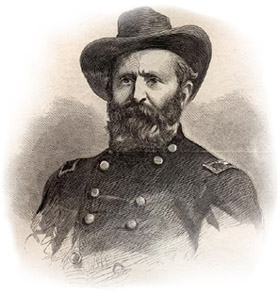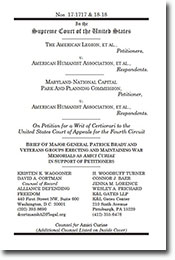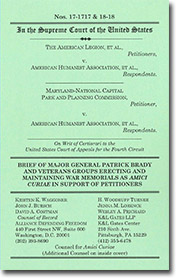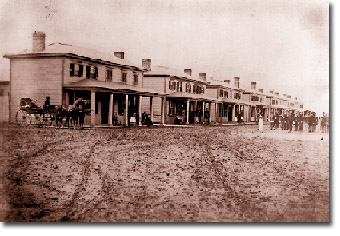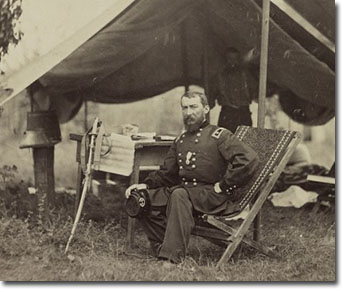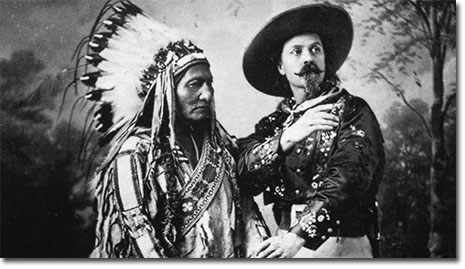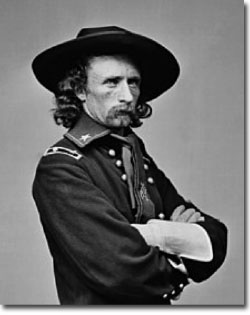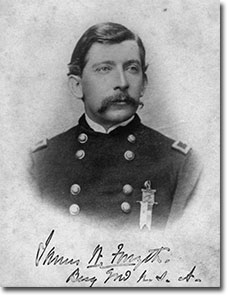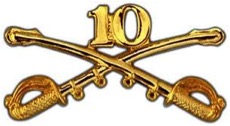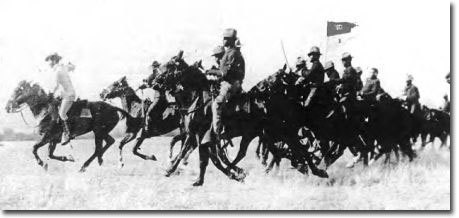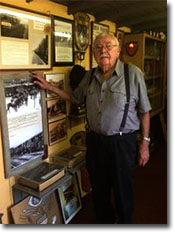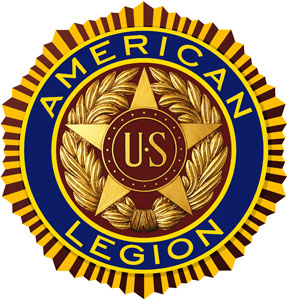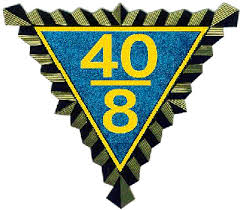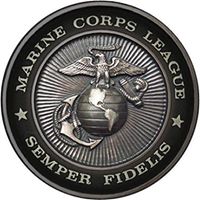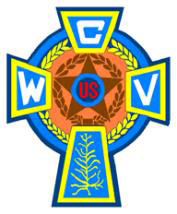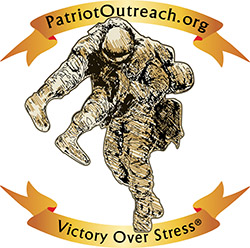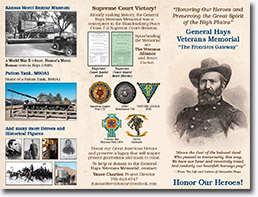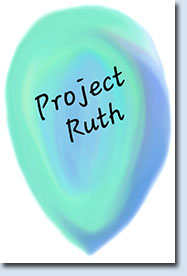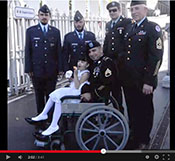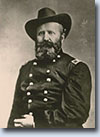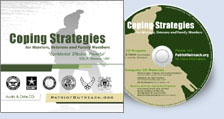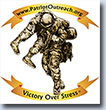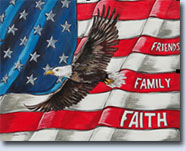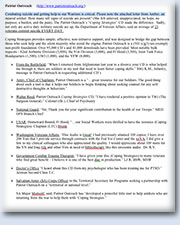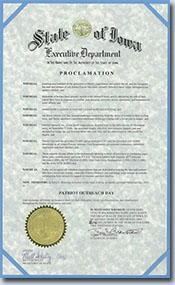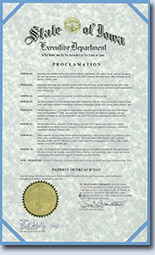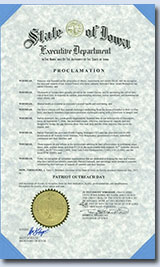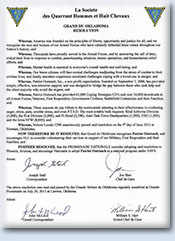| Patriot Outreach Supporting our Armed Forces, Retirees, Veterans, Government Civilians, Battlefield Contractors, First Responders and their Families (Patriots) |
| Home | My Story | Programs | What's Happening | About Stress & PTSD | News & Reports | Donate | Mission | Contact |
General Hays Veterans Memorial Honor Our Heroes!“The Frontiers Gateway”
Please Donate and Join Us in this Noble Endeavor! |
|||||||||
| Several Veterans Groups realizing the need to Honor Our Heroes from the “High-Plains” and stationed at Fort Hays, our nation's Frontier Gateway, commissioned The General Hays Veterans Memorial. | |||||||||
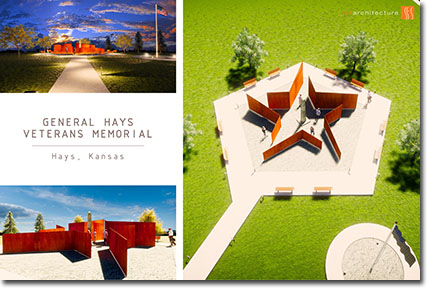 |
|||||||||
Phase 1: Kick-Off Phase 2: Ground Breaking Phase 3: Dedication |
|||||||||
| For additional information, including how to help or donate to the General Hays Veterans Memorial, please contact: Vance Chartier Directeur Merci Boxcar & Chef De Gare The Society of 40 Men & 8 Horses Voiture 1543 1702 Harvest Rd. Hays, KS 67601 KansasMerciBoxcar@outlook.com |
|||||||||
The General Hays Veterans Memorial |
|||||||||
| Message from Army Retiree, Vance Chartier, Project Director |
|||||||||
| Since the establishment of Fort Hays on October 11, 1866, it became our nations Frontier Gateway. The Fort was named after Major General Alexander Hays. Its purpose was to protect the wagon trains, stagecoach, and railroads. Since the inception of Old Fort Hays, there have been many Veterans who have served in the many wars since, some who have given the ultimate sacrifice, such as Congressional Medal of Honor recipient, Sergeant John Denny, one of the “Buffalo Soldiers” that had been stationed there. There have been many Soldiers, Sailors, Airmen, Marines and Guardians that have honorably served our country and many sacrificed all such as a recent hero of the Afghanistan war, Chief Warrant 2 Bryan Nichols who died when the CH 47 aircraft he was flying filled with 20 Special Forces, Afghani soldiers and crew to a remote location to fight the Taliban during “Operation Extortion 17” without any protective escort was shot down. Sadly, there are no memorials that honor the service of all of these Veterans from the “High Plains” of Northwest Kansas. The proposed Memorial of the “High Plains” will honor all of the Veterans that have sacrificed so much over the years from all parts of Northwest Kansas and will incorporate the existing memorial in its design. The effort to establish this Memorial is being led by “Patriot Outreach” (an IRS 501(C)3) that in addition to helping communities establish memorials to our Veterans, it also uses the preponderance of the money it raises to help those that suffer from PTSD, dementia and other mentally related diseases of those serving in combat and the degenerate diseases of age. Locally the effort is being led by a committee led by Grand Directeur of the Kansas Merci Box Car and Chef de Gare of Voiture 1543, Vance Chartier (Project Director), and representatives from the American Legion, Marine Corps League, Catholic War Veterans and Patriot Outreach. |
|||||||||
| Please Join Us in this Noble Endeavor! Honor Our Heroes!! |
|||||||||
| ~ SPECIAL ANNOUNCMENT ~ | |||||||||
Supreme Court Victory! |
|||||||||
| We are already making history; Spearheaded by the The Veteran Alliance, also Amici Curiae, The General Hays Veteran Memorial was a centerpiece in the Blandensburg Peace Cross 7-2 Supreme Court Decision. | |||||||||
|
|||||||||
Historical Fort Hays Veterans |
|||||||||
| “On October 11, 1866, in the land of the Cheyenne and Arapaho, Fort Fletcher was reopened approximately one-fourth mile north of its previous location, at the confluence of Big Creek and the North Fork of Big Creek. The Union Pacific Railway, Eastern Division, was being constructed westward roughly paralleling the Smoky Hill Trail and construction workers needed the protection of the U.S. Army. In November 1866 Fort Fletcher was renamed Fort Hays in honor of Major General Alexander Hays, who was killed during the Civil War. As the railroad approached Fort Hays, it became apparent that it would pass approximately five miles to the north of the post.” “The army wanted the fort to be used as a supply depot for other forts in the area and therefore needed it to be located close to the railroad line. In the spring of 1867, a flood nearly wiped out Fort Hays killing nine soldiers and civilians. Two weeks later, on June 23, the new Fort Hays 15 miles east of the previous location and near the railroad right-of-way was occupied. With the arrival of the railway a few months later, the goal of a large supply depot to service forts to the south and west was realized.” “In addition to its supply role, Fort Hays was a base for troops defending the railroad and white settlements in the area. Nearly six hundred troops were stationed here in the early years.” “Some of the famous figures associated with the fort included Congressional Medal of Honor Recipient (Buffalo Soldier) Sergeant John Denny, Wild Bill Hickok, Buffalo Bill Cody, General Nelson Miles, General Philip Sheridan, Major Marcus Reno and Lieutenant Colonel George Armstrong Custer. It was also the home of several well-known Indian wars regiments such as the Seventh U.S. Cavalry, the Fifth U.S. Infantry, and the Tenth U.S. Cavalry, whose black troopers were better known as Buffalo Soldiers. After 25 years of service, Fort Hays was abandoned on November 8, 1889. Today it operates as Fort Hays State Historic Site and Museum.” Video of Fort Hays Historic Site and Museum. |
|||||||||
Notable individuals who lived at worked at or associated with Fort Hays include:To protect the Frontier, in 1868, GEN Sheridan, stated: I “transferred my headquarters from Leavenworth to Fort Hays… the prosperous town of Hays City… just beyond the line of the most advanced settlements, and was then the terminus of the Kansas-Pacific railroad.” (Personal Memoirs of P.H. Sheridan)
|
|||||||||
|
|||||||||
5th Cavalry Regiment |
|||||||||
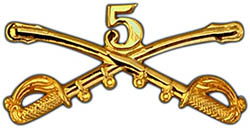 |
|||||||||
| “In September 1868, the 5th Cavalry Regiment received its orders and began preparations for duty against hostile Indians in Kansas and Nebraska. In the following years, the 5th Cavalry fought many skirmishes and battles against the Sioux, Cheyenne, and Arapaho on the Great Plains, and against the Utes in Colorado. On 8 July 1869 at the Republican River in Kansas, Cpl John Kyle made a valiant stand against attacking Indians resulting in him receiving the Medal of Honor.” “In these campaigns, William F. “Buffalo Bill” Cody acted as chief guide and scout, and first distinguished himself. For this battle, the regiment received the congratulations of the various military commanders and the thanks of the Legislature of Nebraska. It ended Indian terrorism in two States for many years.” |
|||||||||
Congressional Medal of Honor Recipient, Corporal John Kyle CO M, 5th Cavalry |
|||||||||
| Action: At Republican River, Kansas on 8 July 1869: Citation: “The President of the United States of America, in the name of Congress, takes pleasure in presenting the Medal of Honor to Corporal John Kyle, United States Army, for extraordinary heroism on 8 July 1869, while serving with Company M, 5th U.S. Cavalry, in action at Republican River, Kansas. Corporal Kyle and two others were attacked by eight Indians, but beat them off and badly wounded two of them.” “Cpl John Kile enlisted and then deserted from several military units, including Custer's Summer Expedition, using the alias' John Kelley and John Kyle at different times. When he was brought to Custer for his desertion, he showed Custer his Medal of Honor papers and Custer exonerated his desertion. Several weeks later, he got into a brawl with “Wild Bill” Hickok. He tried to shoot Hickok, but his gun misfired, and then Hickok shot and killed him.” 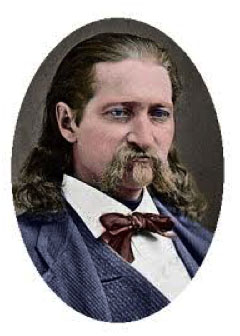 James B. “Wild Bill” Hickok" In September 1868, “Wild Bill” Hickok was hired as a Scout by the 10th Cavalry Regiment. He was wounded in the foot rescuing several cattlemen in the Bijou Creek Basin who had been surrounded by Indians. “Wild Bill” arrived in Ft. Hays to stay in December 1867 and became a Deputy US Marshall. |
|||||||||
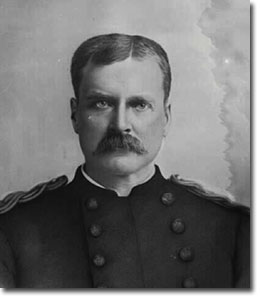 Major George Forsyth “In July 1865 he was appointed Major of the 9th U.S. Cavalry. In the Summer of 1868, he was ordered by General Sheridan to recruit a party of "fifty first-class hardy frontiersmen" to scout the Indians of Kansas, Nebraska, and Colorado regions.” “Major Forsyth and his second in command, Lieutenant Frederick H. Beecher and the group left Fort Hays on August 29th. Within a few days, Forsyth received word about a raid against a freight train near the settlement of Sheridan, Kansas. They quickly pick up the trail and gave pursuit.” |
|||||||||
7th Cavalry Regiment |
|||||||||
| General Custer was sent to Kansas in 1866 as Lieutenant Colonel of the newly formed 7th U.S. Cavalry Regiment. “Following its activation, the Seventh Cavalry Regiment patrolled the Western plains for raiding Native Americans and to protect the westward movement of pioneers. From 1866 to 1881, the regiment marched a total of 181,692 miles (292,342 km) across Kansas, Montana, and Dakota Territory.” In June 1867, Custer departed Fort Hays, searching for hostiles. “In June 1876, Lieutenant Colonel George A. Custer was killed in the Battle of the Little Bighorn, along with 267 soldiers of the 7th Cavalry. Although the regiment is well known for the Battle of the Little Bighorn, it also participated in other battles of the American Indian Wars, including the Battle of Bear Paw (30 September 1877 – 5 October 1877) and the Battle of Crow Agency (5 November 1887). On 29 December 1890, the regiment instigated the Wounded Knee Massacre, an event that signaled the end of the American Indian Wars.” |
|||||||||
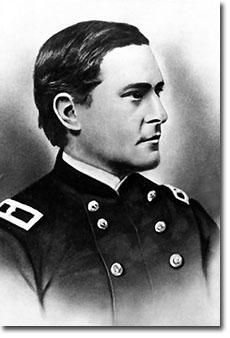 Marcus Albert Reno “In December 1868, Marcus Reno was promoted to major and served on court-martial duty at Fort Hays, Kansas. On July 21, 1871, he joined the 7th Cavalry as commander at Spartanburg, South Carolina. After several special assignments, he joined the consolidated regiment at Fort Abraham Lincoln in October 1875.” Serving “under George Armstrong Custer in the Great Sioux War against the Lakota (Sioux) and Northern Cheyenne. Reno is most noted for his prominent role in the Battle of the Little Bighorn. This has since been a subject of controversy regarding his command decisions in the course of one of the most infamous defeats in the history of the United States military.” “Court of Inquiry convened at Chicago, Illinois, January 13, 1879, by the President of the United States upon the request of Major Marcus A. Reno, 7th U.S. Cavalry, to investigate his conduct at the Battle of the Little Big Horn, June 25-26, 1876.” “James W. Forsyth remained in the Regular Army after the end of the Civil War. He commanded a brigade of cavalry for two years and was a strong supporter of African Americans and Buffalo Soldiers. He then joined Sheridan again in 1867 and moved with him when he became commander of the Department of Missouri in 1866. Forsyth served first as the department's secretary and then as an inspector, with an appointment in the cavalry. Major James W. Forsyth, 10th Cavalry, took part in military campaigns against the Comanche, Cheyenne, Arapaho, and Kiowa Indians in 1868-69.” |
|||||||||
10th Cavalry Regiment (Buffalo Soldiers) |
|||||||||
|
|||||||||
9th Cavalry Regiment (Buffalo Soldiers) |
|||||||||
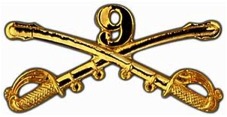 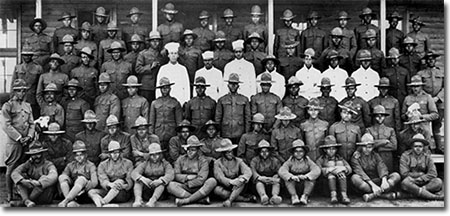 On August 3, 1866, Major General Philip H. Sheridan, was authorized to raise one regiment of "colored" cavalry to be designated the 9th Regiment of U. S. Cavalry. In June 1881, the regiment was reassigned from New Mexico to Kansas and Indian Territory, where it remained until 1885 patrolling the northern portion of Indian Territory and southern Kansas. |
|||||||||
Congressional Medal of Honor Recipient, Sergeant John Denny, Buffalo Soldier, CO D, 9th Cavalry |
|||||||||
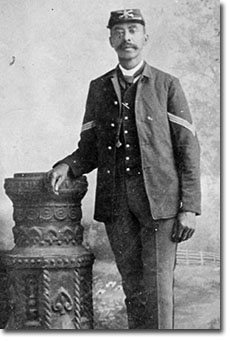 “Sergeant John Denny enlisted in the United States Army on June 13, 1867, and was assigned to the 10th Cavalry. Following a five-year stint with the 10th, Sgt. Denny reenlisted and was assigned to the 9th Cavalry.” Citation: “The President of the United States of America, in the name of Congress, takes pleasure in presenting the Medal of Honor to Sergeant John Denny, United States Army, for extraordinary heroism on 18 September 1879, while serving with Company C, 9th U.S. Cavalry, in action at Las Animas Canyon, New Mexico. Sergeant Denny removed a wounded comrade, under a heavy fire, to a place of safety.” |
|||||||||
Brig. Gen. Louis H. Carpenter, U. S. Cavalry |
|||||||||
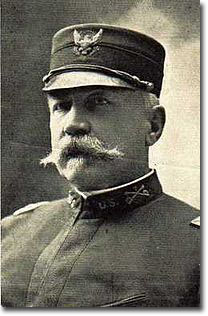 |
|||||||||
Louis H. Carpenter “was appointed Captain on 28 July 1866 of “D” company, 10th Cavalry and served with them for thirteen (13) years of continuous Indian wars. His men respected him, and his company had the lowest desertion rate of the regular army during his charge. His ability to train and lead was notable, and he was mentioned in the official reports for Gettysburg and an order issued by General Sheridan concerning combat on the Beaver Creek in Kansas.” |
|||||||||
Brig. Gen. Nelson Appleton Miles |
|||||||||
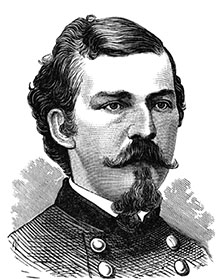 Brigadier General Miles “was involved in almost every major battle of the Civil War, was wounded several times, and was awarded the Congressional Medal of Honor. During the Indian Wars, he commanded the Fifth U.S. Infantry regiment, with some companies operating at times as mounted infantry and took part in nearly all the major campaigns the army waged against the Plains Indians.” |
|||||||||
“The Angel of the Fort” Ghosts of the Plains - Elizabeth Polly, The Blue Light Lady |
|||||||||
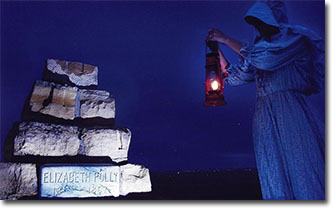 Video: Fort Hays: Ghosts of the Plains - The Blue Light Lady “She was the young wife of Ephriam Polly, the hospital steward, or male nurse, during the cholera epidemic at Fort Hays in 1867. Elizabeth was the hospital matron who helped sick and dying soldiers deal with what was, for many, the final hours of their lives. In the evening she would often walk to the hill south of the fort, now known as Sentinel Hill, where she is said to have found some comfort and spiritual healing.” “To most people who live in Hays, she is known as the "Blue Light Lady. "Elizabeth Polly’s spirit is said to walk the hill still looking to comfort her soldiers. Many people have made attempts to witness her spirit firsthand. Some have claimed that she has appeared wearing a blue, prairie-style dress and bonnet, while others claim that she is a misty blue light. Other people have claimed that while waiting at the top of the hill for Elizabeth's spirit to arrive, footsteps have been heard walking up the hill and suddenly disappearing at the top, yet nobody was to be found around the hill.” “One specific event was reported in 1950 when a police officer radioed a report to dispatch saying that he had just hit a woman dressed in blue not far from the hill. He then quickly exited his car and searched for a body. None was ever found |
|||||||||
Merci Boxcar |
|||||||||
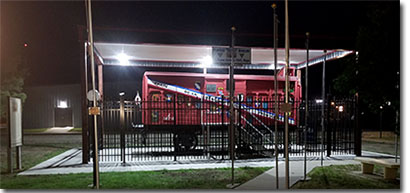 |
|||||||||
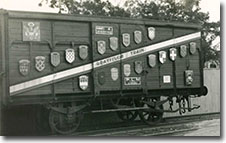 |
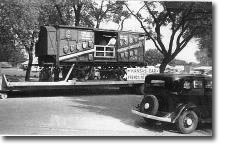 |
||||||||
Home to the historically unique, Kansas Merci Boxcar & Museum. The boxcar was 1 of 49 box cars sent to each state and one to be shared by The District of Columbia and Hawaii as a thank you from France for the 700 boxcars of grain and other items needed for the recovery from WWII organized by News Commentator Drew Pearson. It went on a 120 city tour of Kansas in 140 days and arrived in Hays on November 11, 1949. Merci Boxcar Flyer |
|||||||||
Patton Tank, M60A1 |
|||||||||
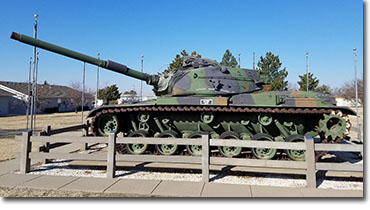 Home of a Patton Tank, M60A1, served in the US Military from the Vietnam and Cold War era and which was phased out when the M1 Abrams tank was fielded in the 1980s, still extensively used worldwide |
|||||||||
“Dances with Wolves” |
|||||||||
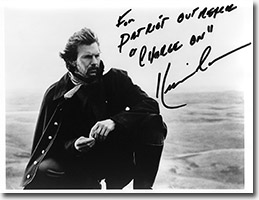 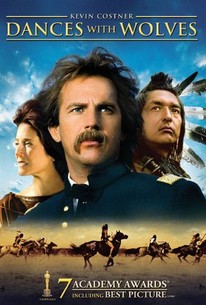 Lieutenant John Dunbar (Kevin Costner) popularized Fort Hays in his international successful movie “Dances with Wolves,” now an American epic Western film; earning seven Academy Awards, including Best Picture. Dances With Wolves "Fort Hays" Trailer |
|||||||||
The Veteran Alliance
|
|||||||||
General Hays Memorial Tri-Fold Flyer |
|||||||||
| For additional information, including how to help or donate to the General Hays Veterans Memorial, please contact: Vance Chartier Project Director 785-623-6747 KansasMerciBoxcar@outlook.com Join Us on Facebook |
|||||||||
| Veterans Memorial Renderings |
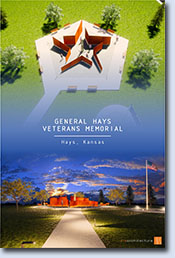 |
 |
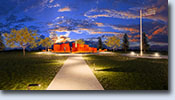 |
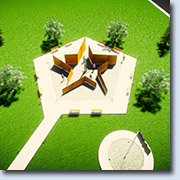 |
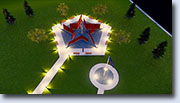 |
| Patriot Outreach Programs |
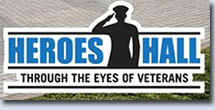 In combating suicides and stress, check out our latest update, BraveMind. Our Coping Strategies, including BraveMind (an interactive, immersive virtual reality system, utilizing exposure therapy, the most effective evidence-based approached for PTSD). |
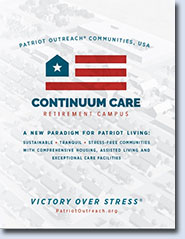 Continuum Care Retirement Campus Patriot Outreach's Continuum Care Retirement Campus (CCRC) will become an international model for self-sustaining, stress-free physical environment tackling the #1 medical shortfall destroying Families, care for Veterans - - Assisted Living and Dementia Village. Read the CCRC Brief Executive Summary |
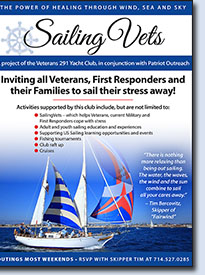 SailingVets A project of the American Legion, Newport Harbor Post 291 in conjunction with Patriot Outreach Inviting all Veterans, First Responders and their Families to sail their stress away! "There is nothing more relaxing than being out sailing. The water, the waves, the wind and the sun combine to sail all your cares away" Informational Flyer |
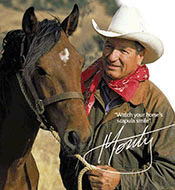 Monty Roberts "Horse Sense & Soldiers" We are teamed with the Legendary Monty Roberts the “Horse Whisperer,” in cooperation with his “Join-Up, International” are providing “Horse Sense and Soldiers - Join-Up with Veterans” workshops and the results are fantastic! We have people laughing and getting back to a normal life who have been afflicted with PTSD for upwards of 35 years. From Vietnam to Afghanistan, these injured warriors come home in a terrible state and need our help to get back to the civilized world. The horses are doing their work with incredible efficiency. More than 50 Veterans and their Families have benefited. |
| ExtremeVets Freeing Disabled Patriots  A breakthrough initiative allowing Disable Patriots who are unable to participate physically the ability to reclaim life, fulfilling a dream or passion through the magic of Virtual Reality (VR) (such as to riding a Roller-Coaster, Scuba Diving or Climbing Mt. Everest). Teamed with OmniLife VR, we want to field twelve VR Teams, treating over 360 Disable Patriots. KMBC (ABC) Channel-9 News Story Donate Now |
 SmilingVets - Kick-Off, May 2019: On our opening day, SmilingVets helped to restore smiles to 22 Veterans! This innovative, new program provides critical Dental Care to Our Patriots. From basic cleaning and x-rays to major dental work such as crowns, root canals, and gum diseases. All procedures covered are completely free of charge, with no need to provide any dental records or insurance. Relieving Patriots from any pain, and giving them the joy of a Smile. SmilingVets Flyer |
|
 Exceptional Sources for Exceptional Careers |
|
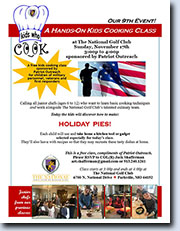 Kids Who Cook Too often our kids are forgetten. We have hosted several 'Kids Who Cook' classes, a real Chef who teaches Military, Veterans & First Responder's Kids (ages 6 to 12) how to cook. |
| Patriot Outreach Projects |
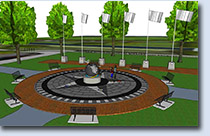 Our Parkville Veterans Memorial Providing a place of reflection, remembrance and recognition while giving thanks to the many brave men and women who have given their lives for our country. |
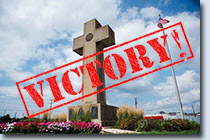 Supreme Court Victory !! "The Peace Cross Will Stand!" |
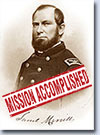 Restoring an American Hero Restoring an American HeroThank You Patriots! Honor and history have been restored to a true American Hero, |
|
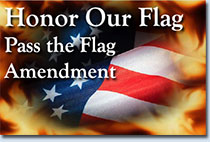 Make a difference, Help pass H.J. Res 61 of The 115th Congress |
| Community Outreach |
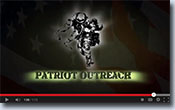 Patriot Outreach Communities PSA Video |
Patriot Outreach's National Spokesman: Alan Taylor |
| Our National SpokesLady: Christi Edelbrock  |
| Be a Volunteer! Join The Team! |
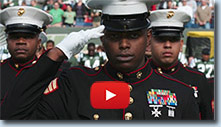 |
| Review our Volunteer Orientation Video |
| Support |
|
 LifeLine Resources LifeLine ResourcesBest Online Support |
 "A Healing Power" "A Healing Power"Chaplain Pringle with Iraq's "IED Hunters" shares his insights into Mindfulness and Spiritual Discipline |
 Warning Signs, Triggers and Coping Strategies Warning Signs, Triggers and Coping Strategiesby COL Kathy Platoni (Psy.D.), 307th Medical Group |
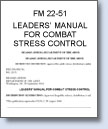 FM 22-51 FM 22-51 Leaders' Manual for Combat Stress Control |
| The Real Cost of the War A special report: Why is the U.S. ignoring battle-scarred soldiers? |
|
| Bravemind / ExtremeVets |
| Online Video Library Directory MedVR Research Group USC Institute for Creative Technologies: |
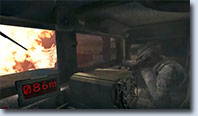 |
| OMNILIFE VR Technologies - VR technology that transforms lives into Magical Immerse Experiences. |
 |
| Dr. Albert "Skip" Rizzo Bio: |
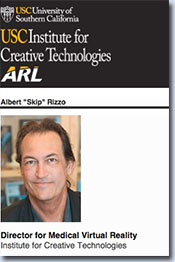 |
| Virtual Reality Applications to Address the Wounds of War |
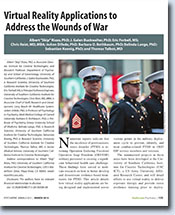 |
| Bravemind - Virtual Reality Exposure Therapy Brief: |
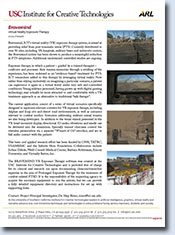 |
| Is Clinical Virtual Reality Ready for Primetime? Neuropsychology Journal: |
 |
| Clinical Virtual Reality Tools to Advance the Prevention, Assessment, and Treatment of PTSD - European Journal of Psychotraumatology |
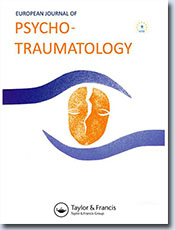 |
| About Prtriot Outreach |
Self-Help Resources Guide: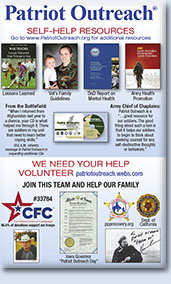 Patriot Outreach Support Flyer: 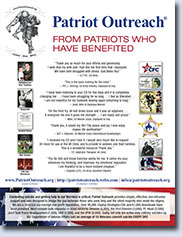 |
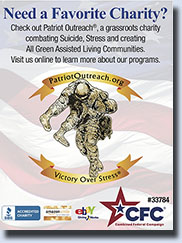 Need a Charity? Check out Patriot Outreach, a Grassroots Charity combating Stress, Suicide and creating Assisted Living Communities. Download a printable flyer |
|
 Giving Back! Giving Back!Northland Magazine Showcases how Patriot Outreach Organizations are providing real life coping strategies. |
 God Bless the USA God Bless the USA Special Video Feature |
| Patriot Outreach Proclamations |
Iowa Governor Branstad Proclaims Memorial Day |
 |
| At Camp Dodge Iowa at the Gold Star Military Museum, Gov. Terry Branstad in view of thousands of attendees signed an executive proclamation declaring Memorial Day to be “Patriot Outreach Day Listen / Download mp3 Audio |
"Patriot Outreach Day" |
Governor Roy Cooper, (D) Proclaims "Veterans Day" "Patriot Outreach Day" 2017: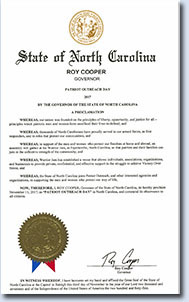 |
Proclamation 'Patriot Outreach Day,' Fayetteville, North Carolina (Ft. Bragg):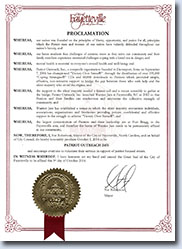 |
Mayor (R) of Fayetteville (Ft. Bragg) Proclaims "Veterans Day" "Patriot Outreach Day" 2017: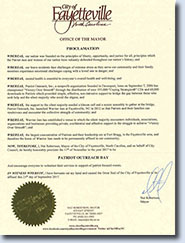 |
| Guidelines and Materials |
 Guidelines for Guidelines for Vets' Families Important advice for families of Veterans to help them cope and overcome stress. |
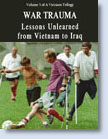 War Trauma: Lessons Unlearned from Vietnam to Iraq War Trauma: Lessons Unlearned from Vietnam to Iraqby Dr. Raymond M. Scurfield, DSW, LCSW Order the Book |
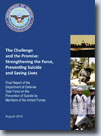 Strengthening Strengthening the Force, Preventing Suicide and Saving Lives Department of Defense PDF Format |
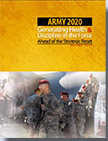 Generating Health and Discipline in Generating Health and Discipline inthe Force Army Headquarters PDF Format |
| Get The Word Out! |
Patriot Outreach is a (501 (c)(3) tax-exempt) non-governmental, non-profit foundation with limited resources.
If you have benefited from this service or share in our mission, please help us reach others. |
| Charitable Partners |
Serving from 2006
Patriot Outreach
100 East Kansas Street, Ste. 143 Lansing, Kansas 66043
Call Toll Free: 1-866-96-STRONG (866-967-8766) (8am to 4pm Pacific time) - Email: info@PatriotOutreach.org
Copyright 2006-2022 Patriot Outreach
